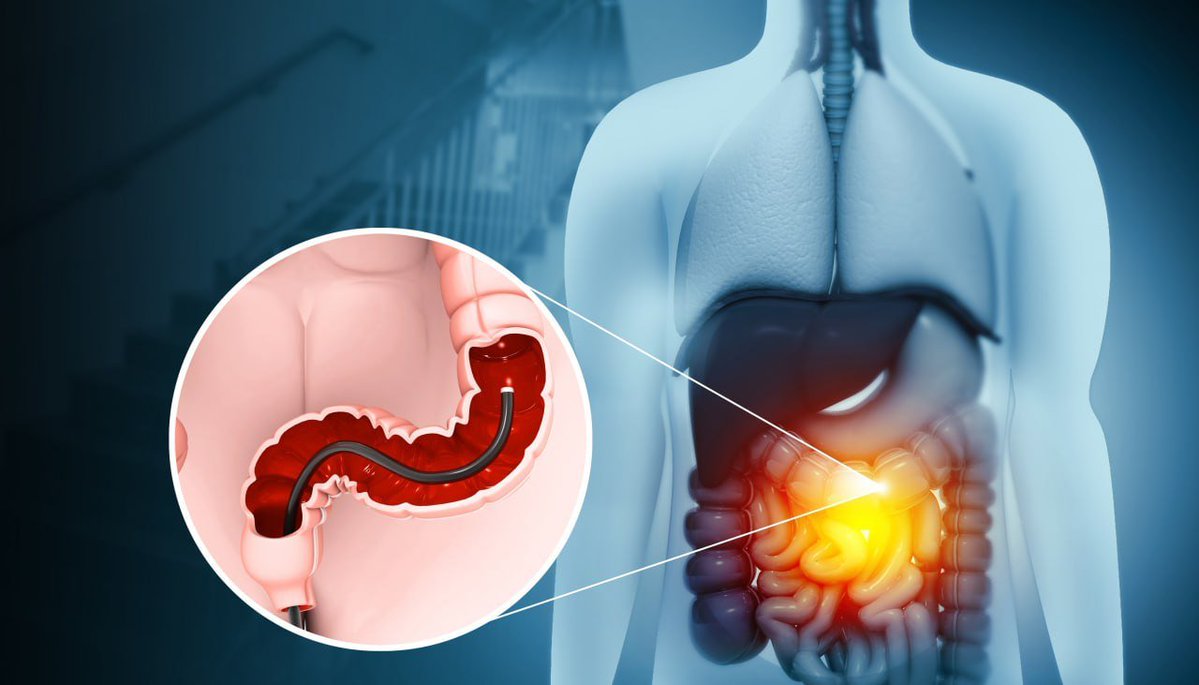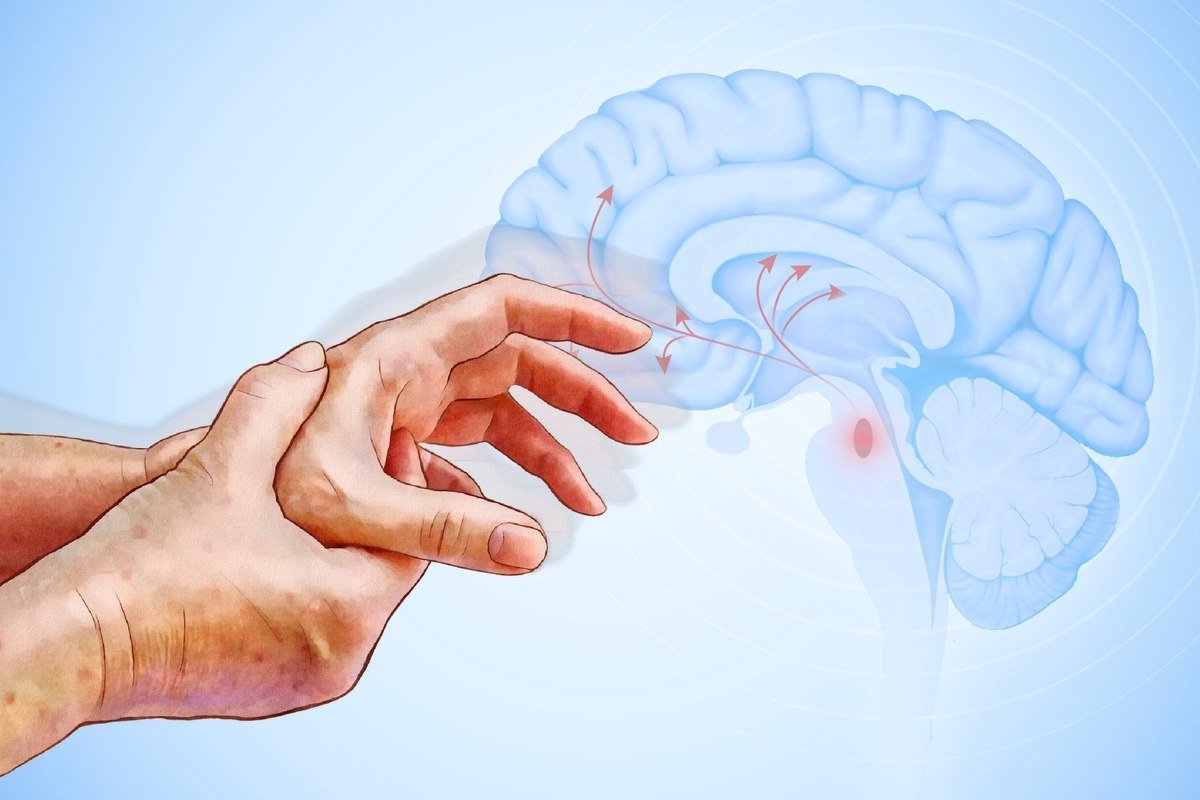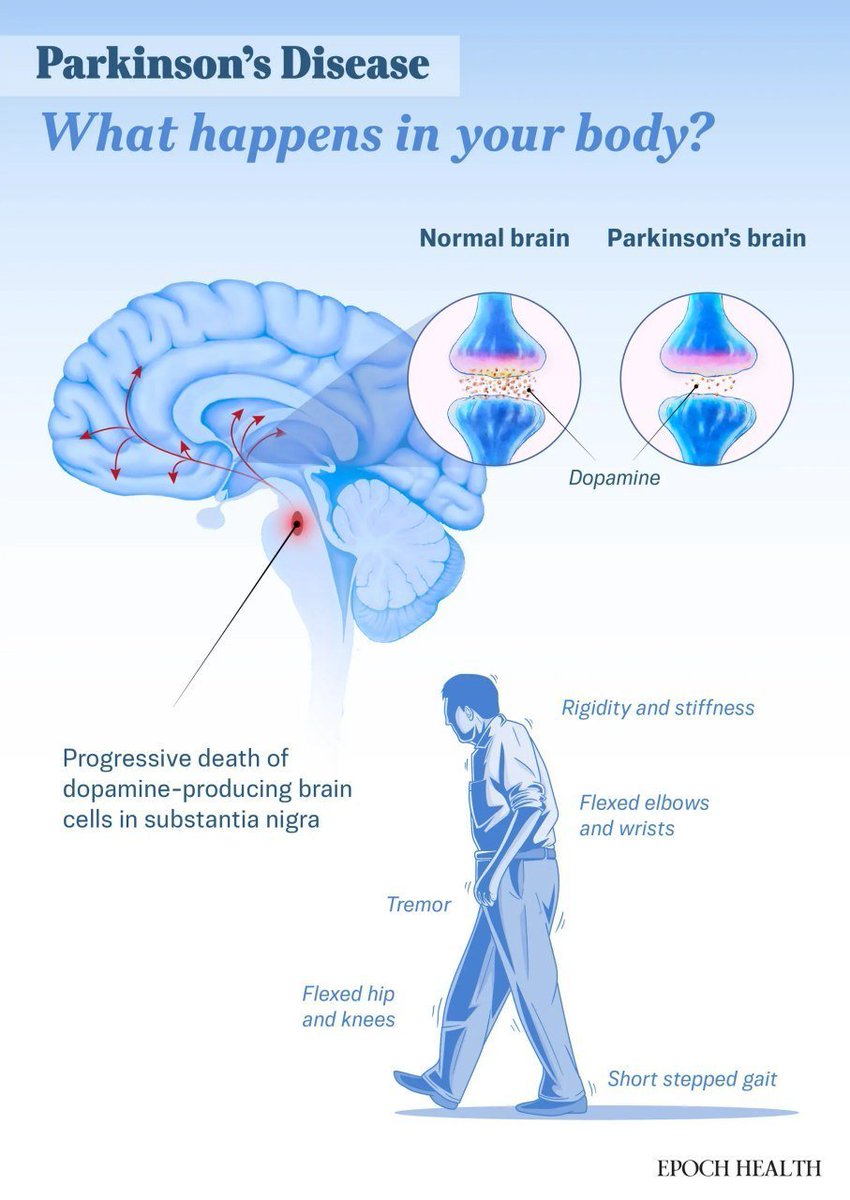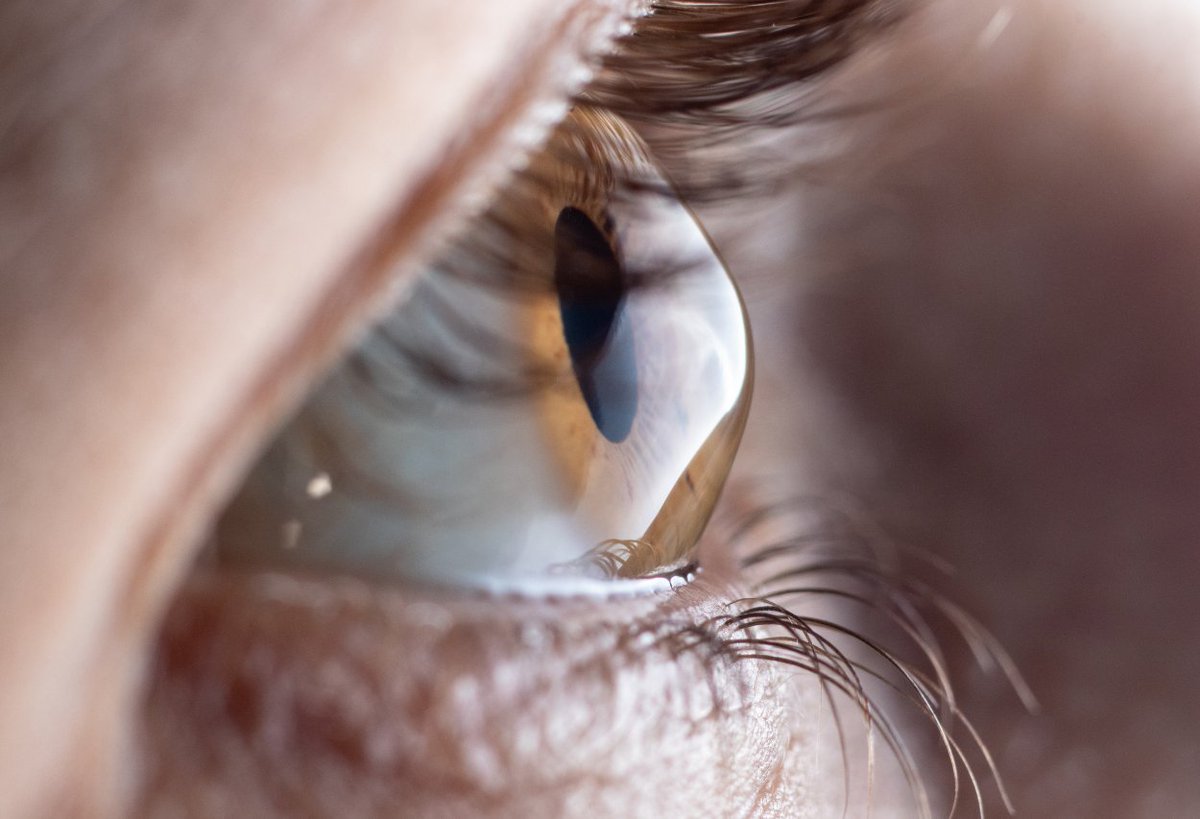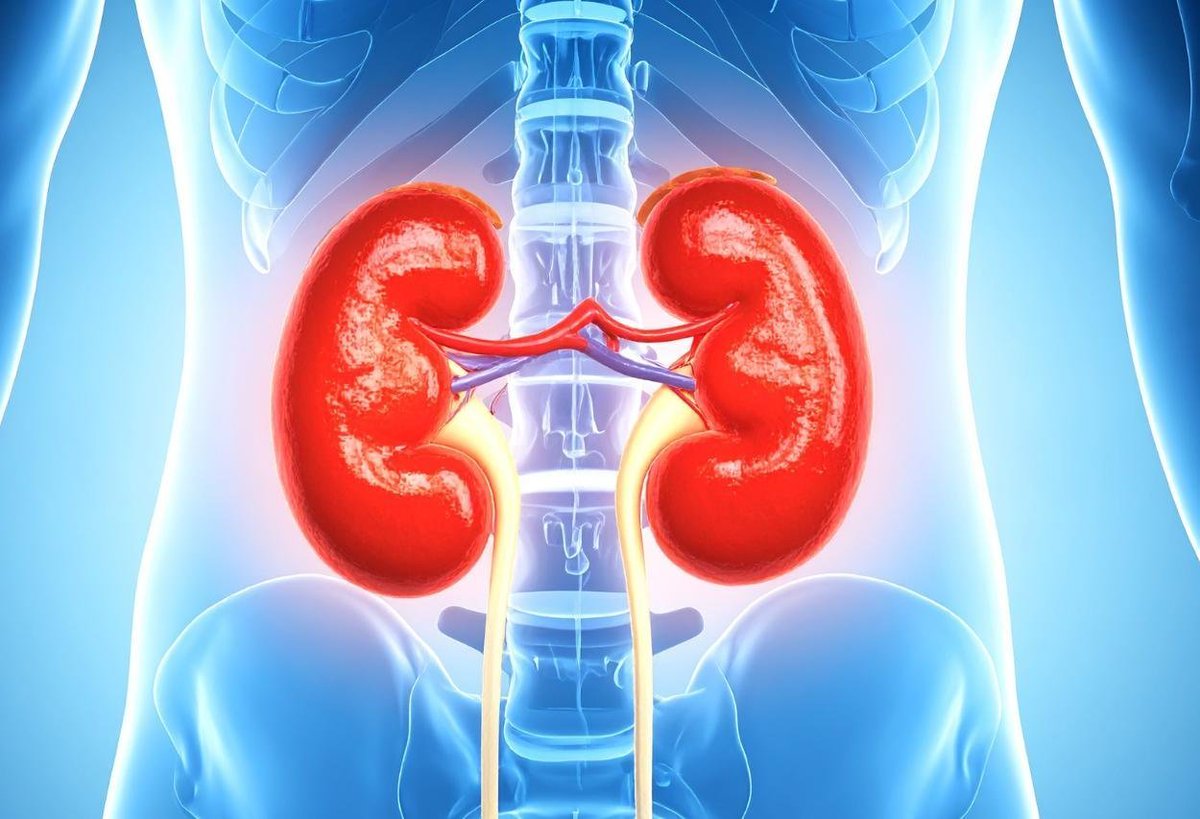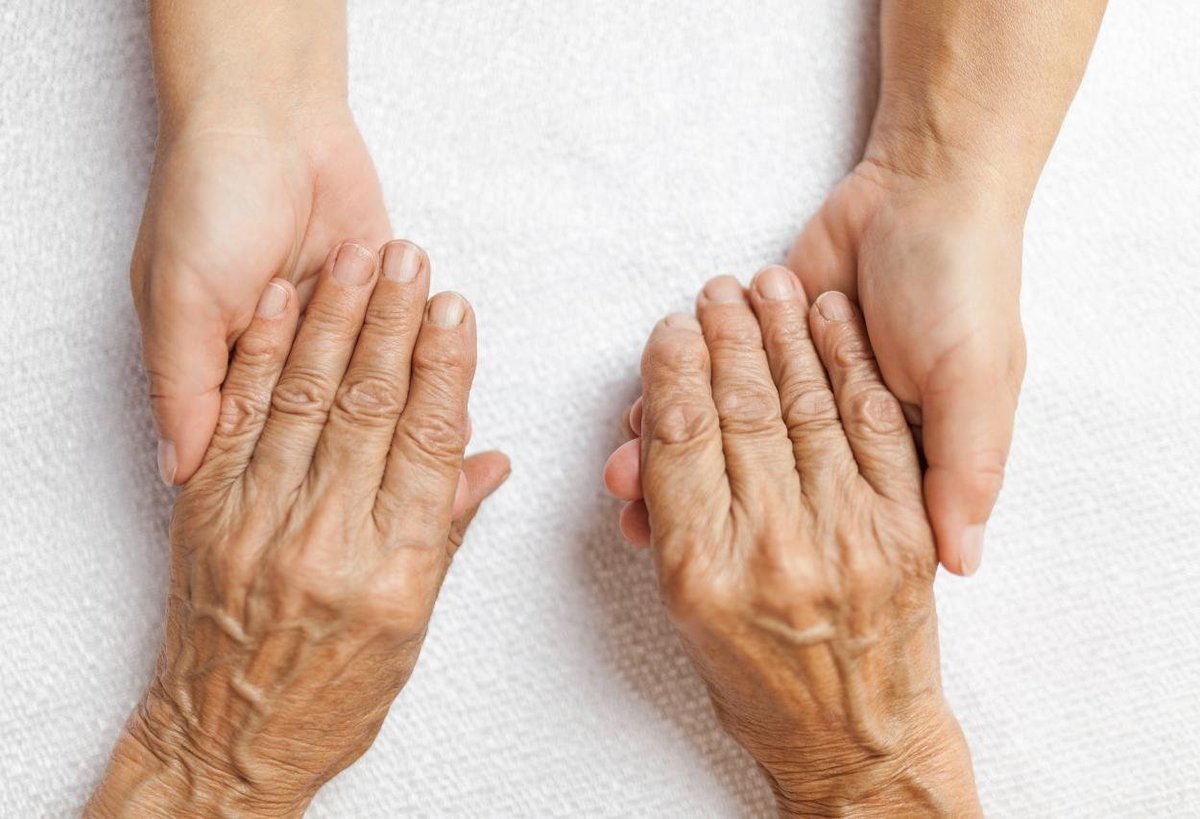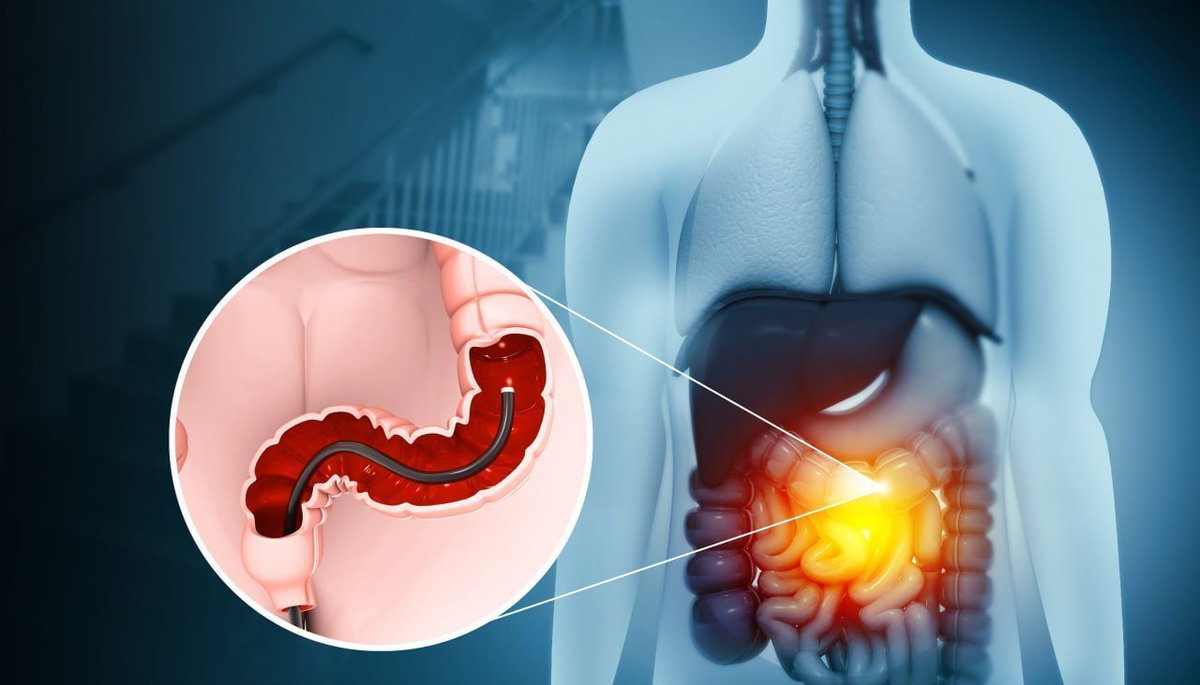Why Sleeping in Total Darkness Matters More Than You Think
Your bedroom light might be quietly wrecking your health.
Just one night of modest light exposure can raise your heart rate, spike your blood sugar, and trigger a stress response—all while you sleep.
Your brain thinks it’s daytime, even with your eyes closed.
So why are we still acting like it’s harmless—when the science says it’s not?
🧵 THREAD
Your bedroom light might be quietly wrecking your health.
Just one night of modest light exposure can raise your heart rate, spike your blood sugar, and trigger a stress response—all while you sleep.
Your brain thinks it’s daytime, even with your eyes closed.
So why are we still acting like it’s harmless—when the science says it’s not?
🧵 THREAD
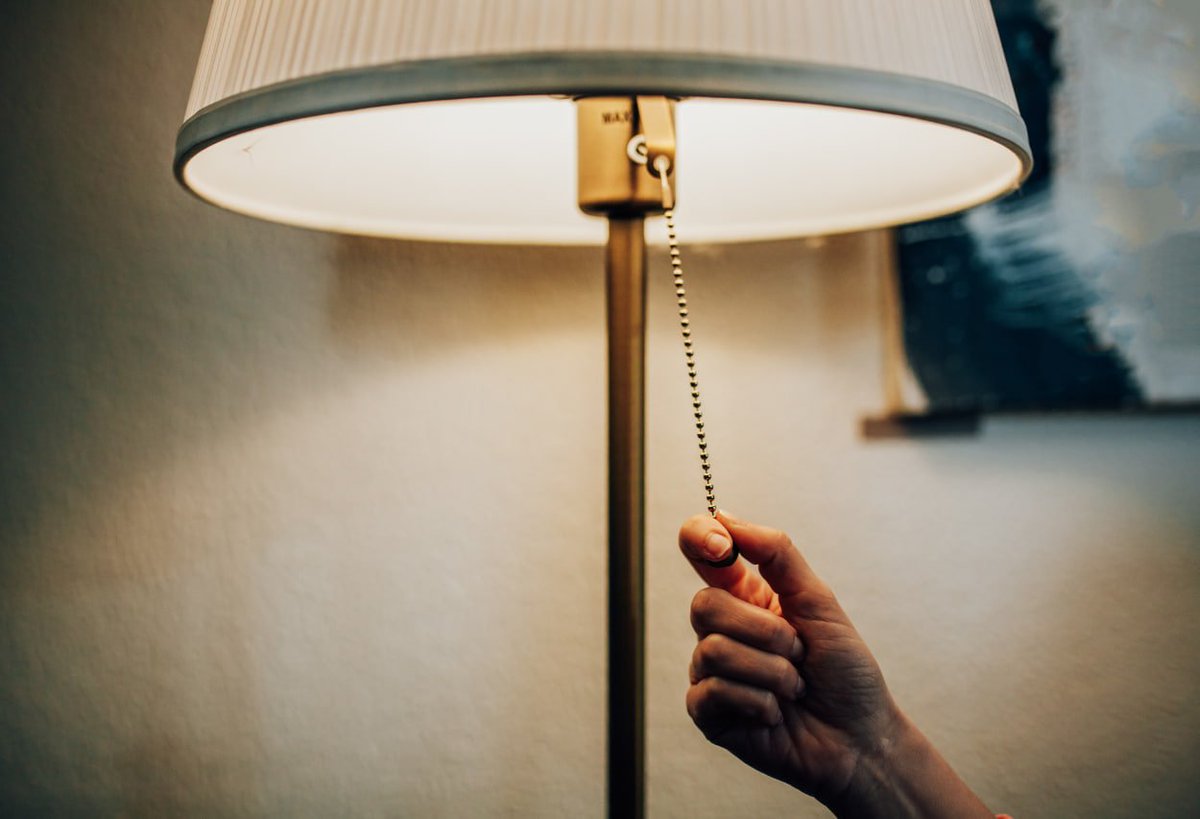
While sleeping in darkness may seem obvious, research shows that even small amounts of light, such as the glow from your phone screen or a nightlight, can disrupt the body’s internal clock, suppress melatonin, and interfere with deep sleep. Over time, this may increase the risk of developing chronic diseases such as obesity, diabetes, depression, and cardiovascular disease.
Sleep is not merely a passive act of unconsciousness; it is an active process of repair and recalibration.
“The body’s systems only achieve euphoric homeostasis—true well-being—when the demands of the day are met with enough depth, timing, and continuity of sleep. Light at night interrupts this, even if subtly, and especially for those already vulnerable,” Dr. Roger Washington, a family medicine physician focused on sleep wellness and the medical director of the Sleep to Live Well Foundation, told The Epoch Times.
“When light combines with the will to stay alert—scrolling a phone, watching TV—it locks the brain in an acquisition mode, which postpones the entry into reparative sleep cycles.”
Blue light from screens has been linked to reduced sleep quality and shorter sleep duration. On the other hand, research suggests that sleeping in a dark, cool environment supports melatonin production and promotes better physical and mental well-being.
Sleep is not merely a passive act of unconsciousness; it is an active process of repair and recalibration.
“The body’s systems only achieve euphoric homeostasis—true well-being—when the demands of the day are met with enough depth, timing, and continuity of sleep. Light at night interrupts this, even if subtly, and especially for those already vulnerable,” Dr. Roger Washington, a family medicine physician focused on sleep wellness and the medical director of the Sleep to Live Well Foundation, told The Epoch Times.
“When light combines with the will to stay alert—scrolling a phone, watching TV—it locks the brain in an acquisition mode, which postpones the entry into reparative sleep cycles.”
Blue light from screens has been linked to reduced sleep quality and shorter sleep duration. On the other hand, research suggests that sleeping in a dark, cool environment supports melatonin production and promotes better physical and mental well-being.
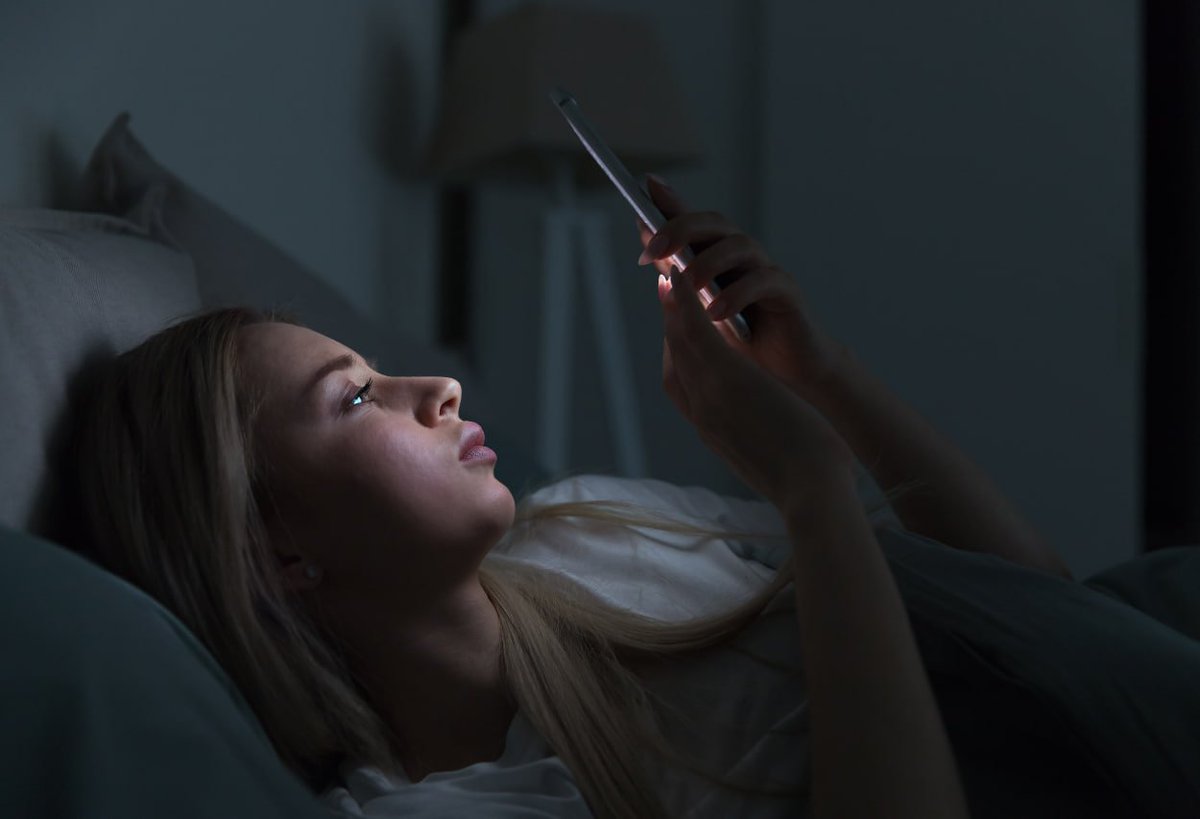
Promotes Melatonin Balance
Even low levels of light at night can disrupt your circadian rhythm—the body’s internal sleep-wake clock—leading to poor sleep quality.
While daylight exposure helps regulate your internal clock, which supports melatonin production at night, exposure to bright light at night can lower melatonin levels and interfere with sleep.
“Light at night delays circadian rhythm and promotes sympathetic nervous system activation,” Washington said.
“Sleeping in darkness allows the body’s master timekeeper, the suprachiasmatic nucleus, to align internal rhythms with the natural sleep-wake cycle.”
The suprachiasmatic nucleus is a small area in the hypothalamus that acts as the body’s internal clock, controlling sleep-wake cycles by responding to light signals from the eyes.
Melatonin not only helps you fall and stay asleep but also acts as a powerful antioxidant. Avoiding artificial light exposure at night can help maintain better melatonin levels and improve sleep quality.
Even low levels of light at night can disrupt your circadian rhythm—the body’s internal sleep-wake clock—leading to poor sleep quality.
While daylight exposure helps regulate your internal clock, which supports melatonin production at night, exposure to bright light at night can lower melatonin levels and interfere with sleep.
“Light at night delays circadian rhythm and promotes sympathetic nervous system activation,” Washington said.
“Sleeping in darkness allows the body’s master timekeeper, the suprachiasmatic nucleus, to align internal rhythms with the natural sleep-wake cycle.”
The suprachiasmatic nucleus is a small area in the hypothalamus that acts as the body’s internal clock, controlling sleep-wake cycles by responding to light signals from the eyes.
Melatonin not only helps you fall and stay asleep but also acts as a powerful antioxidant. Avoiding artificial light exposure at night can help maintain better melatonin levels and improve sleep quality.

Boosts Heart Health
Older adults who are exposed to light at night are more likely to have common heart and metabolic health problems. A 2023 study involving more than 550 adults ages 63 to 84 in the United States found that even small amounts of light during the night can disrupt sleep and daily rhythms, which may raise the risk of issues such as obesity, diabetes, and high blood pressure—but not high cholesterol.
The authors of the study note that light at night may increase the risk of obesity and diabetes by disrupting the body’s natural metabolic rhythms and causing people to eat at times that don’t match their internal clock. Nighttime light exposure can interfere with the body’s ability to control heart rate and breathing during sleep, creating stress-like effects. Washington noted that just one night of exposure to moderate light levels—about 100 lux—can raise heart rate, lower parasympathetic activity, and impair glucose tolerance.
Results from another 2021 cohort study published in the European Heart Journal suggest that long-term exposure to outdoor light at night may increase the risk of coronary heart disease (CHD). Over 11 years, researchers identified 3,772 new CHD hospitalizations and 1,695 CHD-related deaths in a group of older adults. Researchers demonstrated that higher levels of nighttime outdoor light around people’s homes were linked to a higher risk of hospitalizations and deaths. However, more research is needed to fully understand how light exposure at night affects heart health.
Washington said that persistent light exposure sends an ongoing “wake signal” to the body, keeping cortisol, insulin, and blood pressure elevated. This simulated stress response can interfere with essential repair processes and increase the risk of disease, he said.
Older adults who are exposed to light at night are more likely to have common heart and metabolic health problems. A 2023 study involving more than 550 adults ages 63 to 84 in the United States found that even small amounts of light during the night can disrupt sleep and daily rhythms, which may raise the risk of issues such as obesity, diabetes, and high blood pressure—but not high cholesterol.
The authors of the study note that light at night may increase the risk of obesity and diabetes by disrupting the body’s natural metabolic rhythms and causing people to eat at times that don’t match their internal clock. Nighttime light exposure can interfere with the body’s ability to control heart rate and breathing during sleep, creating stress-like effects. Washington noted that just one night of exposure to moderate light levels—about 100 lux—can raise heart rate, lower parasympathetic activity, and impair glucose tolerance.
Results from another 2021 cohort study published in the European Heart Journal suggest that long-term exposure to outdoor light at night may increase the risk of coronary heart disease (CHD). Over 11 years, researchers identified 3,772 new CHD hospitalizations and 1,695 CHD-related deaths in a group of older adults. Researchers demonstrated that higher levels of nighttime outdoor light around people’s homes were linked to a higher risk of hospitalizations and deaths. However, more research is needed to fully understand how light exposure at night affects heart health.
Washington said that persistent light exposure sends an ongoing “wake signal” to the body, keeping cortisol, insulin, and blood pressure elevated. This simulated stress response can interfere with essential repair processes and increase the risk of disease, he said.

A little about us: We’re a team of journalists and researchers on a mission to give you REAL and honest information about your health.
Side effects of reading our posts may include: critical thinking.
Follow us for more daily threads—backed by hard data.
—> @EpochHealth
Side effects of reading our posts may include: critical thinking.
Follow us for more daily threads—backed by hard data.
—> @EpochHealth

Supports Mental Health
Light at night can affect your mental well-being by disrupting sleep quality. Poor sleep has been associated with mental illness, and in turn, mental health can also affect how well you sleep.
A cross-sectional study published in January in Building and Environment looked at how common bedtime habits affect sleep and mental health in more than 13,000 Chinese college students. The study found that behaviors such as using screens in dim light and keeping lights on during sleep, and mental illnesses such as depression and anxiety increased sleep problems.
“Light at night, especially artificial light, confuses your brain into thinking it’s still daytime. This delays melatonin release, throws off your circadian rhythm, and fragments sleep,” Leah Kaylor, a licensed psychologist specializing in sleep, told The Epoch Times.
“Chronic light exposure at night essentially keeps your nervous system in a low-grade state of alert, which can wear down your mental resilience. Over time, disrupted sleep-wake cycles are linked to higher rates of depression, anxiety, and mood instability.”
She noted that children and teens who develop good sleep hygiene are better equipped to manage mood swings, stress, and cognitive demands in adulthood.
Research also shows that consistent exposure to a healthy sleep environment—cool, dark, and quiet—helps set strong circadian rhythms early in life. These rhythms influence everything from stress tolerance to emotional regulation.
Kaylor said that the brain needs extended time in slow-wave and rapid eye movement (REM) sleep to regulate emotions, remove toxins, and carry out overnight repair; and darkness plays a key role in initiating that process.
REM sleep is a sleep stage in which dreaming occurs and the brain processes emotions, memories, and learning.
Light at night can affect your mental well-being by disrupting sleep quality. Poor sleep has been associated with mental illness, and in turn, mental health can also affect how well you sleep.
A cross-sectional study published in January in Building and Environment looked at how common bedtime habits affect sleep and mental health in more than 13,000 Chinese college students. The study found that behaviors such as using screens in dim light and keeping lights on during sleep, and mental illnesses such as depression and anxiety increased sleep problems.
“Light at night, especially artificial light, confuses your brain into thinking it’s still daytime. This delays melatonin release, throws off your circadian rhythm, and fragments sleep,” Leah Kaylor, a licensed psychologist specializing in sleep, told The Epoch Times.
“Chronic light exposure at night essentially keeps your nervous system in a low-grade state of alert, which can wear down your mental resilience. Over time, disrupted sleep-wake cycles are linked to higher rates of depression, anxiety, and mood instability.”
She noted that children and teens who develop good sleep hygiene are better equipped to manage mood swings, stress, and cognitive demands in adulthood.
Research also shows that consistent exposure to a healthy sleep environment—cool, dark, and quiet—helps set strong circadian rhythms early in life. These rhythms influence everything from stress tolerance to emotional regulation.
Kaylor said that the brain needs extended time in slow-wave and rapid eye movement (REM) sleep to regulate emotions, remove toxins, and carry out overnight repair; and darkness plays a key role in initiating that process.
REM sleep is a sleep stage in which dreaming occurs and the brain processes emotions, memories, and learning.

Lowers Obesity and Diabetes
“Even dim light (as low as 5 to 10 lux) can disrupt sleep architecture and impair next-day alertness and glucose regulation,” Washington said. “This is not merely a hormonal response—it’s a full-system recalibration.”
This disruption caused by nighttime light exposure shows up in real-world outcomes, too. In a cohort study of 678 older adults, those exposed to light levels of 5 lux or more at night were three to four times more likely to develop diabetes over a 3 1/2-year period. The findings suggest that nighttime light exposure may significantly raise the risk of diabetes in older adults.
While a single night of light exposure is unlikely to cause significant harm, consistent low-level exposure over time can gradually interfere with the body’s functioning, he said.
Avoiding bright light at night might also help lower your risk of diabetes, even if you’re already at genetic risk. A population-based study published in The Lancet involving nearly 85,000 adults in the UK found that people who were exposed to more light at night had a higher risk of developing Type 2 diabetes.
Participants wore light sensors for a week to track their exposure during the day and night. Researchers observed that the brighter the light at night, the higher the risk of diabetes—even after accounting for other risk factors such as age, lifestyle, and genetics. People with disrupted circadian rhythms or irregular light patterns were also at higher risk.
“Even dim light (as low as 5 to 10 lux) can disrupt sleep architecture and impair next-day alertness and glucose regulation,” Washington said. “This is not merely a hormonal response—it’s a full-system recalibration.”
This disruption caused by nighttime light exposure shows up in real-world outcomes, too. In a cohort study of 678 older adults, those exposed to light levels of 5 lux or more at night were three to four times more likely to develop diabetes over a 3 1/2-year period. The findings suggest that nighttime light exposure may significantly raise the risk of diabetes in older adults.
While a single night of light exposure is unlikely to cause significant harm, consistent low-level exposure over time can gradually interfere with the body’s functioning, he said.
Avoiding bright light at night might also help lower your risk of diabetes, even if you’re already at genetic risk. A population-based study published in The Lancet involving nearly 85,000 adults in the UK found that people who were exposed to more light at night had a higher risk of developing Type 2 diabetes.
Participants wore light sensors for a week to track their exposure during the day and night. Researchers observed that the brighter the light at night, the higher the risk of diabetes—even after accounting for other risk factors such as age, lifestyle, and genetics. People with disrupted circadian rhythms or irregular light patterns were also at higher risk.
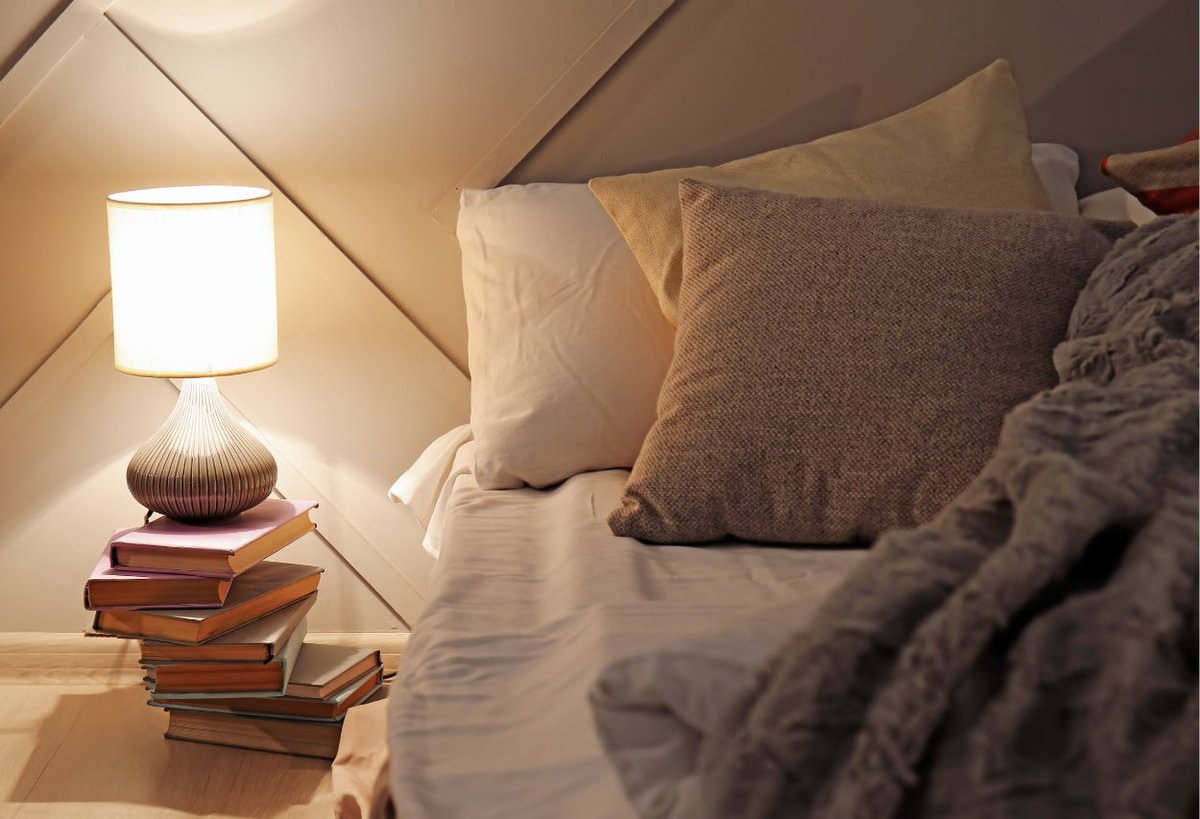
May Lower the Risk of Certain Cancers
Artificial light at night and disruption of the body’s natural rhythm may increase the risk of certain cancers. People living in areas with the most artificial light at night had a 27 percent higher risk of developing pancreatic cancer compared with those in the least-lit areas, according to the results of a large population-based study.
The researchers followed participants for up to 16 years and reported that this elevated risk was consistently associated with nighttime light exposure. This link was similar in both men and women, and stronger in people with normal weight or who were overweight, compared with those who were obese. Since obesity itself is already a strong risk factor for pancreatic cancer, the added effect of light at night might be more noticeable in people without obesity.
Other research supports these findings. A meta-analysis of 17 studies revealed that women with the highest exposure to light at night had an 11 percent higher risk of breast cancer compared with those with the lowest exposure. The risk was slightly greater for premenopausal women and those with estrogen receptor-positive (ER-positive) breast cancer.
ER-positive cancer is a type of breast cancer in which the cancer cells have estrogen receptors, meaning they grow in response to the hormone estrogen.
Earlier research suggests that people who work night shifts or are regularly exposed to light at night may face a higher risk of developing cancer. While the exact reasons aren’t fully understood, one possible explanation is that light at night disrupts melatonin production and causes chronic sleep deprivation. This may interfere with how cells grow and repair themselves, potentially making them more prone to becoming cancerous.
Artificial light at night and disruption of the body’s natural rhythm may increase the risk of certain cancers. People living in areas with the most artificial light at night had a 27 percent higher risk of developing pancreatic cancer compared with those in the least-lit areas, according to the results of a large population-based study.
The researchers followed participants for up to 16 years and reported that this elevated risk was consistently associated with nighttime light exposure. This link was similar in both men and women, and stronger in people with normal weight or who were overweight, compared with those who were obese. Since obesity itself is already a strong risk factor for pancreatic cancer, the added effect of light at night might be more noticeable in people without obesity.
Other research supports these findings. A meta-analysis of 17 studies revealed that women with the highest exposure to light at night had an 11 percent higher risk of breast cancer compared with those with the lowest exposure. The risk was slightly greater for premenopausal women and those with estrogen receptor-positive (ER-positive) breast cancer.
ER-positive cancer is a type of breast cancer in which the cancer cells have estrogen receptors, meaning they grow in response to the hormone estrogen.
Earlier research suggests that people who work night shifts or are regularly exposed to light at night may face a higher risk of developing cancer. While the exact reasons aren’t fully understood, one possible explanation is that light at night disrupts melatonin production and causes chronic sleep deprivation. This may interfere with how cells grow and repair themselves, potentially making them more prone to becoming cancerous.
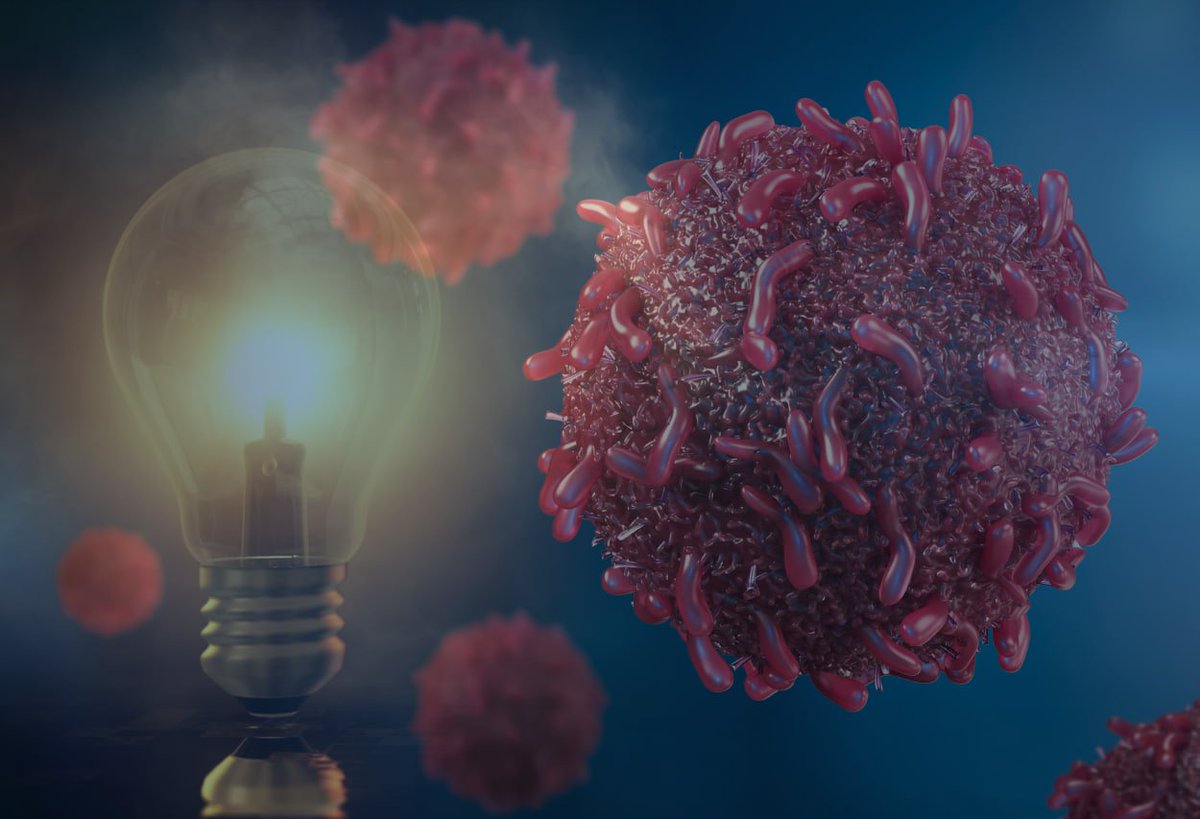
How Dark Should a Room Be?
Washington notes that your sleep environment should be under 1 lux, or “pitch black” to the naked eye. “You shouldn’t be able to see your hand when you extend your arm in front of you,” he said.
Use a red-spectrum nightlight if you need to move around at night, as red light is least likely to interfere with melatonin.
“The darker, the better,” Kaylor said. “If total darkness isn’t possible, reduce exposure as much as you can—eliminate overhead lights, avoid night scrolling, and use low, indirect lighting in the hour before bed.”
Good sleep matters because it’s when your brain files memories, strengthens learning, and refreshes your attention for the next day.
Washington notes that your sleep environment should be under 1 lux, or “pitch black” to the naked eye. “You shouldn’t be able to see your hand when you extend your arm in front of you,” he said.
Use a red-spectrum nightlight if you need to move around at night, as red light is least likely to interfere with melatonin.
“The darker, the better,” Kaylor said. “If total darkness isn’t possible, reduce exposure as much as you can—eliminate overhead lights, avoid night scrolling, and use low, indirect lighting in the hour before bed.”
Good sleep matters because it’s when your brain files memories, strengthens learning, and refreshes your attention for the next day.

Here are a few tips to reduce light exposure at night:
• Use blackout curtains to block out streetlights or early morning sunlight.
• Power down electronics or cover glowing lights with blackout stickers.
• Replace bright bulbs with dim, warm lighting in the evening.
• Wear a contoured sleep mask if you can’t control your surroundings.
“A dark sleep environment helps you reach deeper, uninterrupted stages of sleep, which are essential for sharp thinking, creativity, emotional control, and even decision-making,” Kaylor said.
• Use blackout curtains to block out streetlights or early morning sunlight.
• Power down electronics or cover glowing lights with blackout stickers.
• Replace bright bulbs with dim, warm lighting in the evening.
• Wear a contoured sleep mask if you can’t control your surroundings.
“A dark sleep environment helps you reach deeper, uninterrupted stages of sleep, which are essential for sharp thinking, creativity, emotional control, and even decision-making,” Kaylor said.
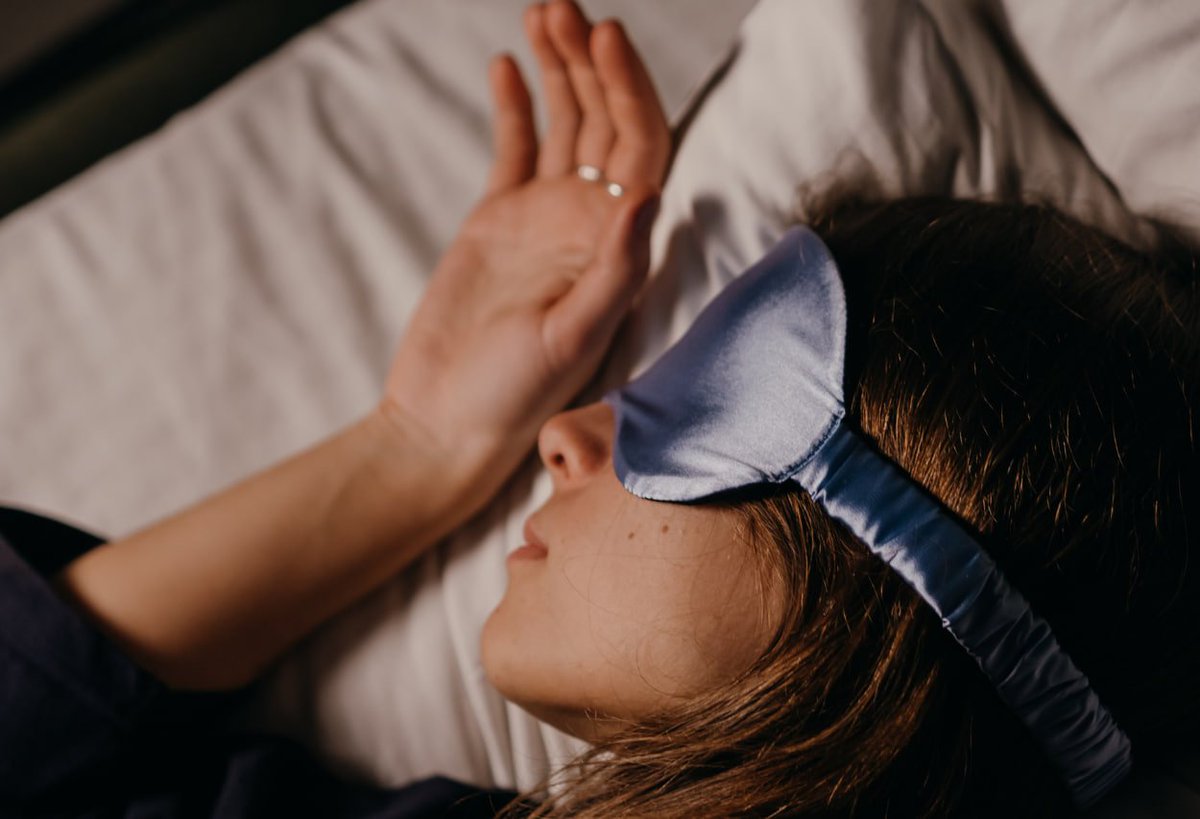
“If you want to be mentally sharper tomorrow, it starts with a pitch-black bedroom tonight.”
theepochtimes.com/health/why-sle…
theepochtimes.com/health/why-sle…
Thanks for reading! If you found this valuable, here's a special deal:
Unlock our ENTIRE library of @EpochHealth articles for just $1/week—plus unlimited access to everything else on our site.
Claim it here: subscribe.theepochtimes.com/p/?page=digita…
Unlock our ENTIRE library of @EpochHealth articles for just $1/week—plus unlimited access to everything else on our site.
Claim it here: subscribe.theepochtimes.com/p/?page=digita…

• • •
Missing some Tweet in this thread? You can try to
force a refresh


